
Al-Mansour: The Cultural Heart of Baghdad
Al-Mansour is a vibrant neighborhood in the heart of Baghdad, Iraq. Known for its rich history and cultural significance, it offers a unique blend of the old and the new. As you stroll through its streets, you'll find a mix of traditional architecture alongside modern buildings, creating a fascinating juxtaposition that tells the story of Baghdad's evolution. From bustling markets to quiet parks, Al-Mansour provides a variety of experiences for every type of traveler. The neighborhood is home to several historical landmarks, including the Al-Mansour Mosque, which stands as a testament to the city's Islamic heritage. For those interested in shopping, the Mansour Mall is a must-visit, offering everything from traditional Iraqi crafts to contemporary fashion. Food lovers will delight in the diverse culinary scene, with numerous restaurants serving both local and international cuisine. Be sure to try traditional Iraqi dishes like masgouf and kubba, which are sure to tantalize your taste buds. In the evening, the neighborhood comes alive with cafes and teahouses where you can unwind and soak in the local atmosphere.
Local tips in Al-Mansour
- Visit early in the morning to avoid the midday heat and crowds.
- Dress modestly to respect local customs and traditions.
- Carry cash, as some smaller shops and vendors may not accept credit cards.
- Try to learn a few basic Arabic phrases to enhance your interaction with locals.
- Be mindful of the local security situation and follow any travel advisories.
Al-Mansour: The Cultural Heart of Baghdad
Al-Mansour is a vibrant neighborhood in the heart of Baghdad, Iraq. Known for its rich history and cultural significance, it offers a unique blend of the old and the new. As you stroll through its streets, you'll find a mix of traditional architecture alongside modern buildings, creating a fascinating juxtaposition that tells the story of Baghdad's evolution. From bustling markets to quiet parks, Al-Mansour provides a variety of experiences for every type of traveler. The neighborhood is home to several historical landmarks, including the Al-Mansour Mosque, which stands as a testament to the city's Islamic heritage. For those interested in shopping, the Mansour Mall is a must-visit, offering everything from traditional Iraqi crafts to contemporary fashion. Food lovers will delight in the diverse culinary scene, with numerous restaurants serving both local and international cuisine. Be sure to try traditional Iraqi dishes like masgouf and kubba, which are sure to tantalize your taste buds. In the evening, the neighborhood comes alive with cafes and teahouses where you can unwind and soak in the local atmosphere.
Iconic landmarks you can’t miss
Martyr Monument
A poignant Baghdad landmark honoring Iraqi martyrs, featuring a stunning turquoise dome and museum.
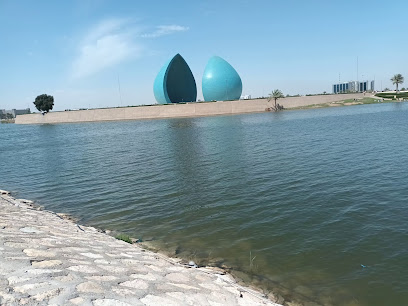
Saving Iraqi Culture Monument
A symbol of resilience in Baghdad, the Saving Iraqi Culture Monument honors Iraq's rich heritage and the collective effort to preserve it.
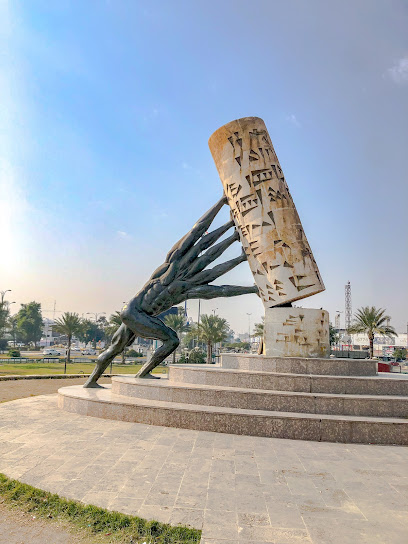
Tahrir Monument
An iconic Baghdad landmark in Tahrir Square, the Freedom Monument commemorates Iraq's independence with powerful symbolism and artistic grandeur.
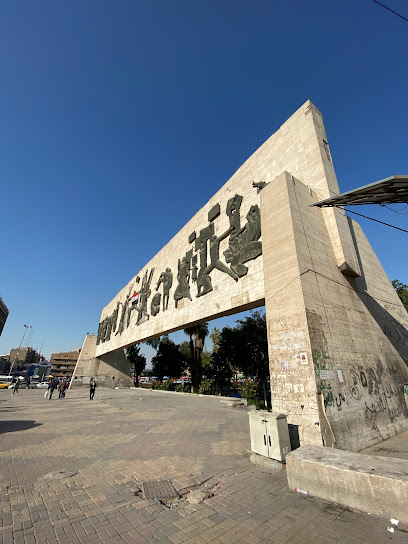
المتنبي مستنصر
Explore Baghdad's Al-Mutanabbi Street: A historic literary hub, vibrant cultural center, and home to rare books and intellectual exchange.
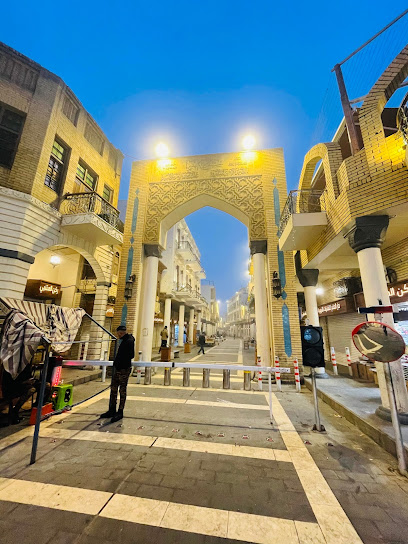
Unknown Soldier Monument
A poignant Baghdad landmark honoring Iraq's fallen soldiers, featuring unique architecture and an underground museum.
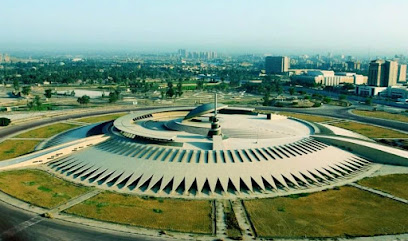
Monument Abu Jafar Al Mansour
A Baghdad landmark honoring the city's founder, the Abbasid Caliph Abu Jafar Al Mansour, in the heart of the Mansour district.
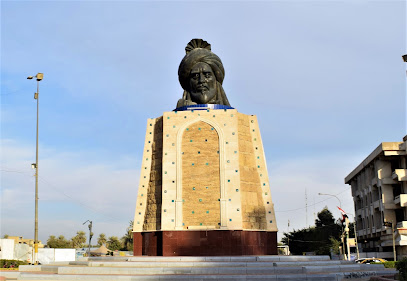
Baghdad Tower
Experience panoramic views of Baghdad from this iconic tower, a symbol of the city's resilience and modern progress.
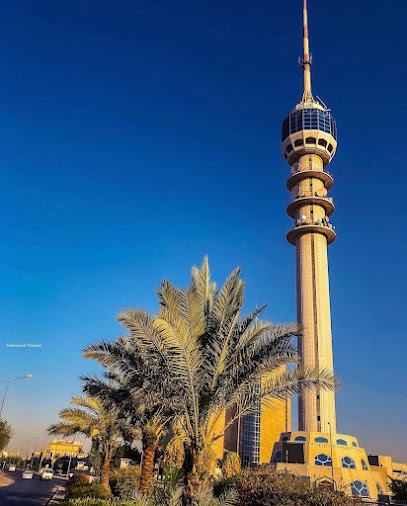
Baghdad Clock
Discover the Baghdad Clock, a symbol of resilience and historical landmark, reflecting Baghdad's enduring spirit through the ages.
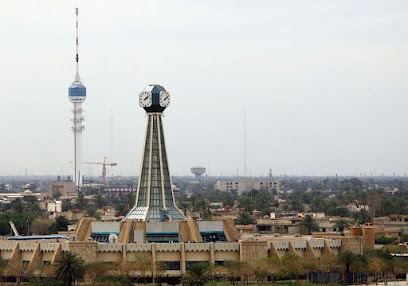
تقاطع المنصور
تقاطع المنصور: نقطة التقاء حيوية في قلب بغداد، تعكس تاريخ المدينة وحاضرها المزدهر. مركز للنشاط التجاري والاجتماعي.
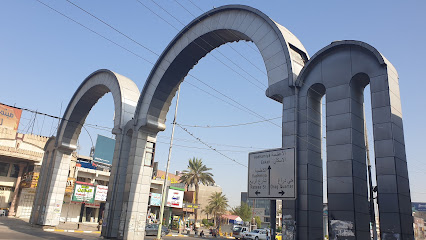
تقاطع الاميرات/ الجادرجي
Discover tranquility in Baghdad at Al-Amirat Gardens, a lush escape offering a serene retreat for families and individuals alike in the heart of the city.
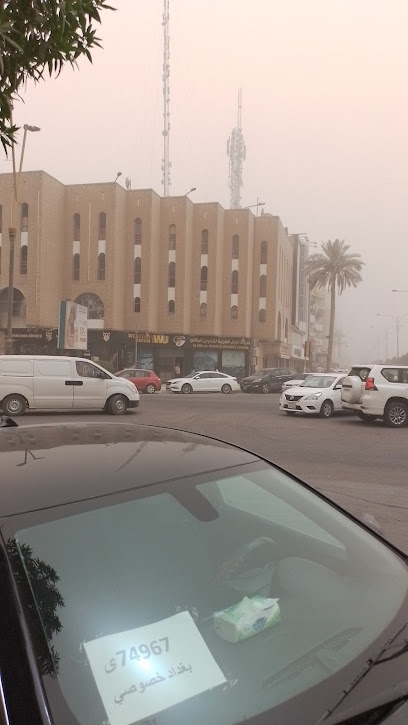
Al-Mansour Cinema
Experience the magic of cinema in Baghdad at Al-Mansour Cinema, a cultural landmark offering a blend of modern and classic films.
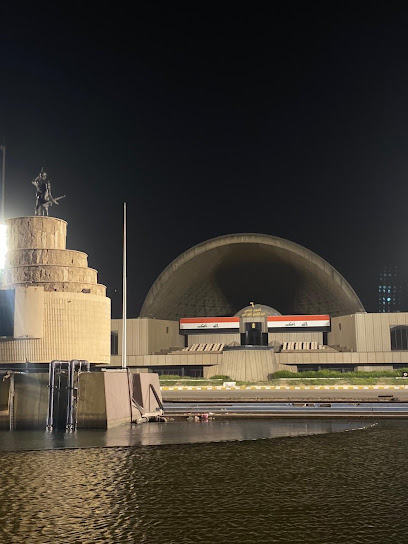
Abu Jaafar Al Mansour
A modern square in Baghdad named after the Abbasid Caliph al-Mansur, founder of the 'City of Peace'.

Unmissable attractions to see
Saving Iraqi Culture Monument
A symbol of resilience in Baghdad, the Saving Iraqi Culture Monument represents the ongoing efforts to preserve Iraq's rich heritage and history.
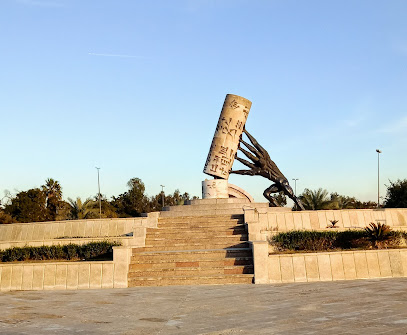
Baghdad Tower
Experience breathtaking panoramic views of Baghdad from this iconic tower, a symbol of the city's resilience and modern progress.
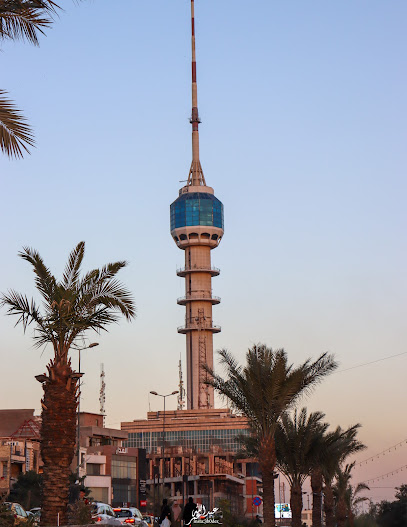
Al-Mansour Cinema
Experience Baghdad's vibrant film culture at Al-Mansour Cinema, a cherished landmark offering a mix of contemporary and classic movies.
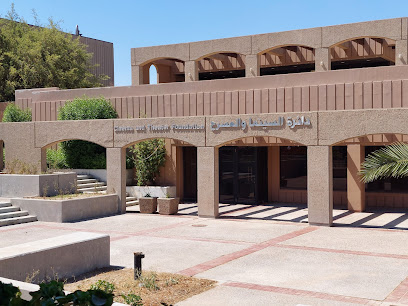
Upside Down House
Experience a world turned upside down at Baghdad's unique Upside Down House! A must-see attraction for playful photos and unforgettable memories.
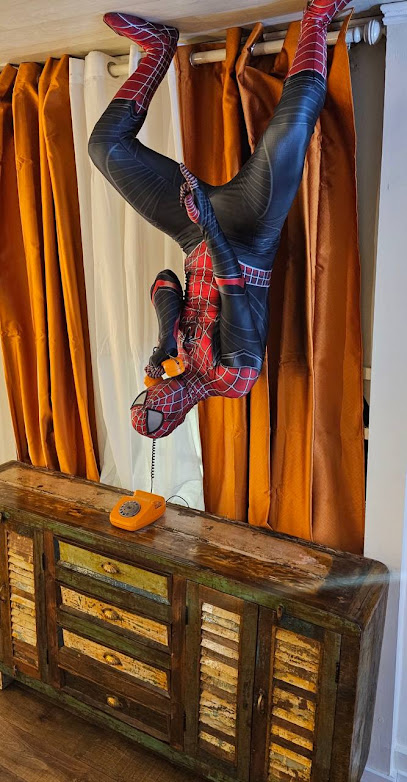
ماجده الرومي
Explore Majid Al-Rumi in Baghdad, a stunning tourist attraction that showcases the city's rich history, culture, and architectural beauty.

شركة غزال الوادي
Explore شركة غزال الوادي in Baghdad, where nature and culture converge to create an unforgettable experience for every traveler.

Essential places to dine
Restaurant Beeston Samad
Experience authentic Iraqi flavors at Restaurant Beeston Samad in Baghdad's vibrant Mansour district - where every meal tells a story.
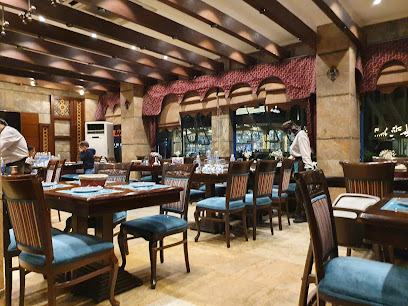
Samad Restaurant
Discover Baghdad's culinary gem at Samad Restaurant, where exquisite meat dishes meet warm hospitality in an elegant setting.
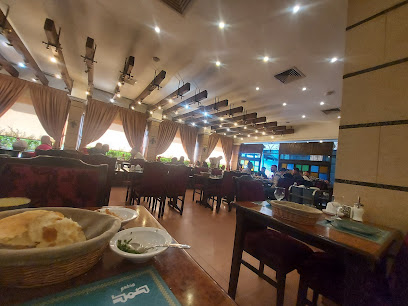
MAZAYA Restaurant
Experience the vibrant flavors of Nuevo Latino cuisine at MAZAYA Restaurant in Baghdad's Al Mansur district.
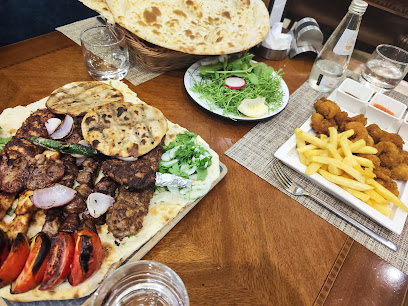
El Arish Restaurant
Discover authentic Iraqi flavors at El Arish Restaurant in Baghdad's Mansour district—where tradition meets taste.
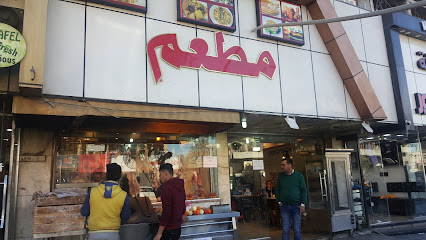
Nineveh Kabab Restaurant
Discover the authentic taste of Iraq at Nineveh Kabab Restaurant in Baghdad, where every bite is infused with tradition and flavor.
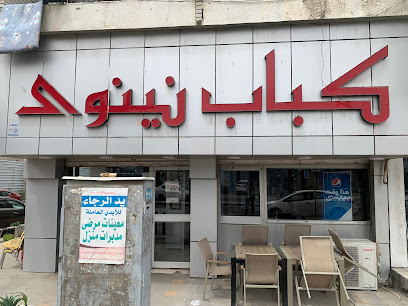
مطعم و كافيه ع السطح
Experience authentic Iraqi cuisine with stunning rooftop views at مطعم و كافيه ع السطح in Baghdad.
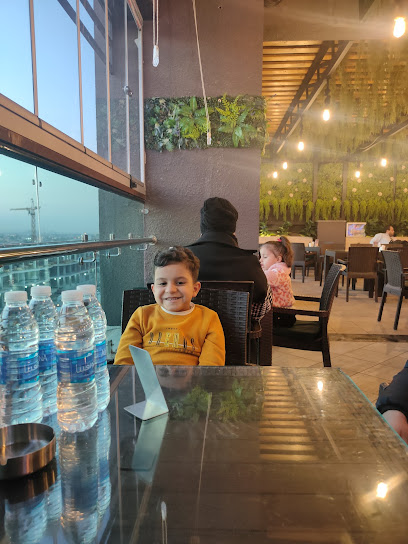
Asayel Restaurant
Experience authentic Moroccan cuisine at Asayel Restaurant in Baghdad—where flavors tell stories and every dish is crafted with passion.
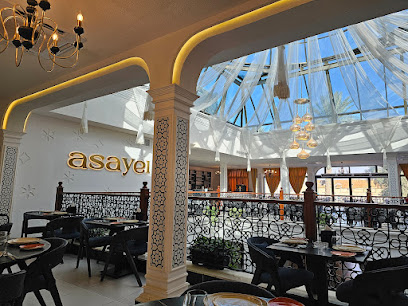
Friends Rest.مطعم
Savor authentic Iraqi cuisine in a welcoming atmosphere at Friends Rest., where tradition meets taste in Baghdad.
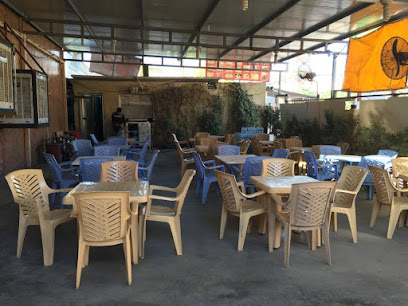
Restaurants and Gardens Medical Group
Discover authentic Iraqi flavors amidst serene gardens at Restaurants and Gardens Medical Group in Baghdad.
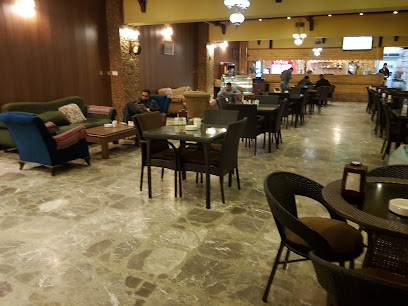
Sky Lounge
Experience exquisite dining at Sky Lounge in Baghdad - where culinary delights meet stunning city views.
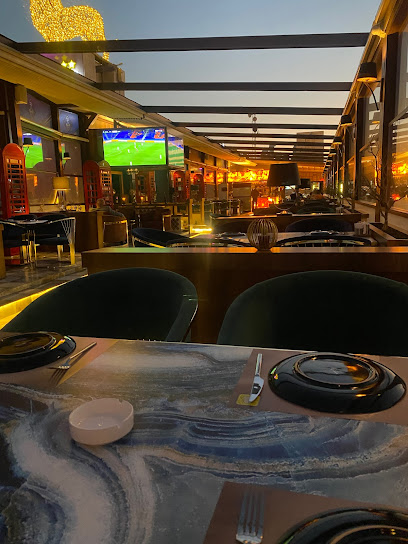
Markets, malls and hidden boutiques
Mansour Mall
Discover diverse shopping and dining experiences at Mansour Mall, Baghdad’s vibrant retail hub, perfect for tourists and locals alike.
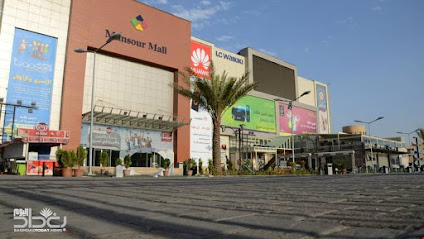
Baghdad Mall
Explore Baghdad Mall, a premier shopping destination offering a blend of local culture, international brands, and diverse dining options in the heart of Iraq.
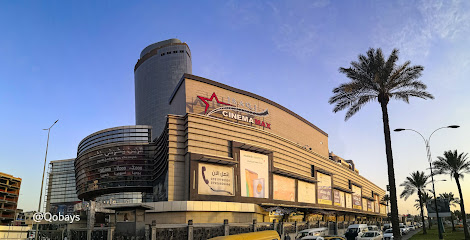
Babylon Mall
Explore Babylon Mall: A premier shopping destination in Baghdad, featuring stores, restaurants, an IMAX theater, and fun for the whole family.
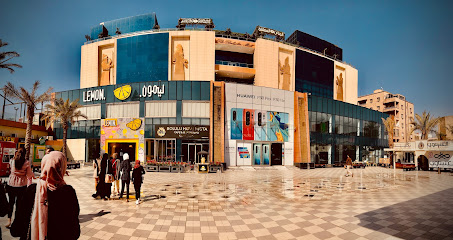
Maximall
Discover the vibrant shopping and dining experience at Maximall, Baghdad's ultimate destination for leisure and entertainment.
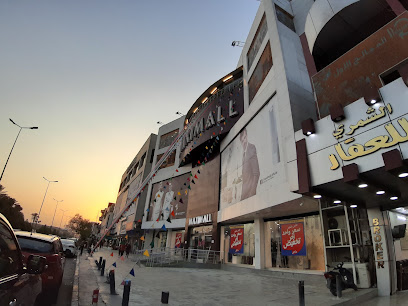
Day to day
Explore the latest trends and styles at Day to Day, Baghdad's premier women's clothing store featuring a diverse selection of fashionable apparel.
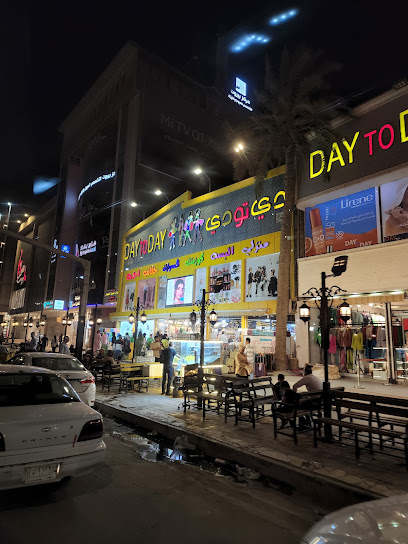
MINISO Babylon Mall
Experience a unique shopping adventure at MINISO in Babylon Mall, featuring trendy products and amazing value in the heart of Baghdad.
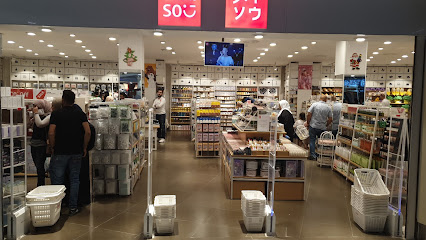
الشمس للماركات الأوربية
Explore the latest European fashion trends at الشمسللماركات الأوربية in Baghdad's Numan commercial complex for a unique shopping experience.
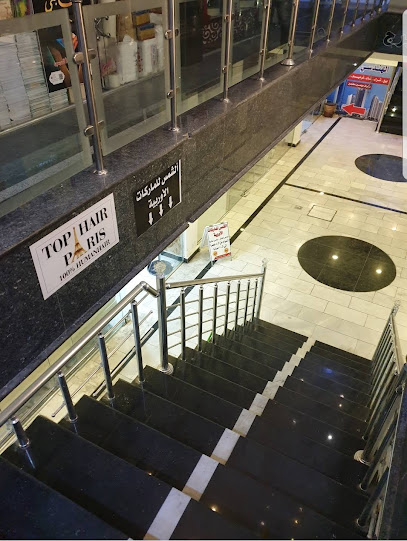
Amazon Baghdad
Experience shopping, dining, and entertainment at Amazon Baghdad, a modern shopping mall that reflects the vibrant culture of Iraq.
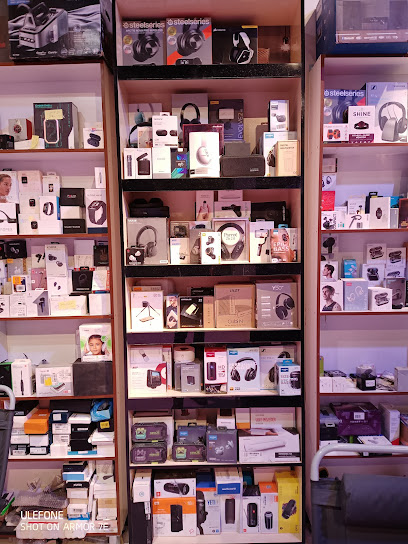
SHOPPING SHOP
Explore the vibrant selection of women's fashion at a chic clothing store in Baghdad, blending modern styles with traditional influences.
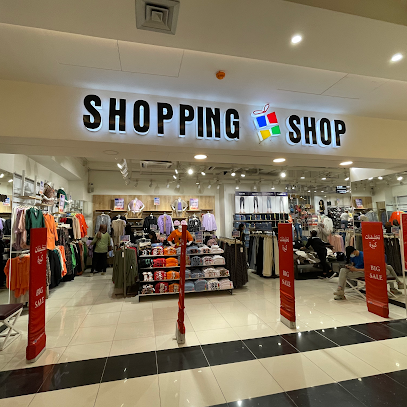
Baby Shop Iraq store-متجر بيبي شوب العراق
Discover Baby Shop Iraq in Baghdad - your go-to destination for quality baby products and a delightful shopping experience.

Essential bars & hidden hideouts
Irish pub
Discover the heart of Irish pub culture in Baghdad, where traditional dishes, lively music, and warm hospitality await every visitor.
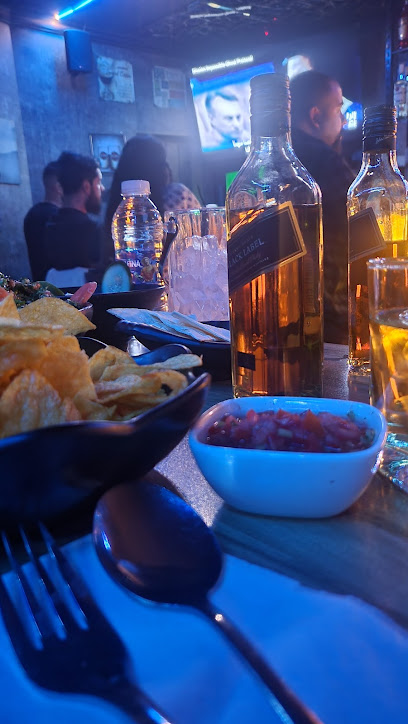
The Square meeting Bars
Experience vibrant nightlife at The Square Meeting Bars in Baghdad, where locals and tourists come together for exceptional drinks and great company.
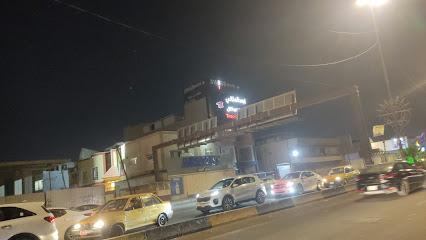
Almansour club
Discover the authentic flavors of Iraq at Almansour Club, a top dining destination in Baghdad for an unforgettable culinary experience.

مطعم
Discover the vibrant bar scene in Mansour, Baghdad, where traditional flavors meet modern nightlife in a friendly atmosphere.
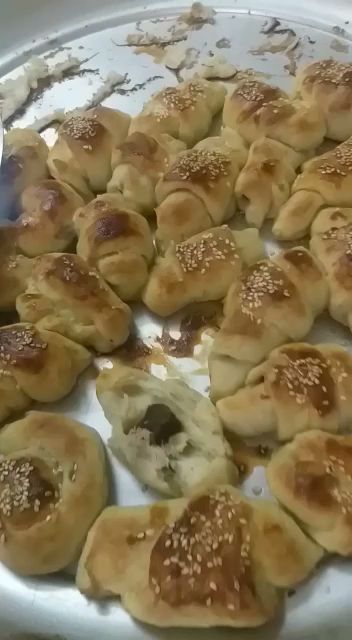
ميسان
Discover ميسان, Baghdad's vibrant bar that captures the essence of local culture and nightlife with traditional drinks and lively ambiance.

لخلخلخلخلخل
Discover the essence of Baghdad's nightlife at a vibrant bar offering local flavors and a lively atmosphere, perfect for unwinding after a day of exploration.

فرع المنصور ٢
Experience the lively spirit of Baghdad at فرع المنصور ٢, a bar where tradition meets modernity and every drink tells a story.

كافي ون بلاس ون
Discover كافي ون بلاس ون, a vibrant bar in Baghdad that blends local culture with a modern ambiance, perfect for a night out.

عين النمر
Discover the vibrant nightlife of Baghdad at عين النمر, a cocktail bar known for its creative drinks and welcoming ambiance.

حديقه سرسنك
Experience the vibrant nightlife of Baghdad at Hadiqat Sirsink, a lively bar that captures the essence of local culture and social engagement.

Local Phrases
-
- Helloسلام
[salaam] - Goodbyeوداعا
[wadaa'an] - Yesنعم
[naam] - Noلا
[laa] - Please/You're welcomeمن فضلك
[min fadlik] - Thank youشكرا لك
[shukran lak] - Excuse me/Sorryعذرا
[aadhiran] - How are you?كيف حالك؟
[kayfa halak?] - Fine. And you?بخير. وأنت؟
[bi-khayr. wa anta?] - Do you speak English?هل تتحدث الإنجليزية؟
[hal tatahadath al-inglizia?] - I don't understandأنا لا أفهم
[ana la afham]
- Helloسلام
-
- I'd like to see the menu, pleaseأريد أن أرى القائمة، من فضلك
[urid an ara al-qa'imah, min fadlik] - I don't eat meatأنا لا آكل اللحم
[ana la aakul al-lahm] - Cheers!صحتين!
[sahhtayn!] - I would like to pay, pleaseأود أن أدفع، من فضلك
[awad an adfa', min fadlik]
- I'd like to see the menu, pleaseأريد أن أرى القائمة، من فضلك
-
- Help!النجدة!
[al-najdah!] - Go away!انصرف!
[ansarif!] - Call the Police!اتصل بالشرطة!
[itassal bialshurta!] - Call a doctor!اتصل بطبيب!
[itassal bitabib!] - I'm lostأنا ضائع
[ana da'ie] - I'm illأنا مريض
[ana mareed]
- Help!النجدة!
-
- I'd like to buy...أريد أن أشتري...
[urid an ashtari...] - I'm just lookingأنا فقط أتطلع
[ana faqat atatalla] - How much is it?كم سعرها؟
[kam si'raha?] - That's too expensiveهذا غالي جدا
[hatha ghali jiddan] - Can you lower the price?هل يمكنك خفض السعر؟
[hal yumkinuk khafd al-si'ra?]
- I'd like to buy...أريد أن أشتري...
-
- What time is it?كم الساعة؟
[kam al-sa'ah?] - It's one o'clockالساعة الواحدة
[al-sa'ah al-wahidah] - Half past (10)العاشرة والنصف
[al-'ashirah wal-nisf] - Morningالصباح
[al-subah] - Afternoonالظهر
[al-dhuhr] - Eveningالمساء
[al-masa'] - Yesterdayأمس
[ams] - Todayاليوم
[al-yawm] - Tomorrowغدا
[ghadan] - 1واحد
[wahid] - 2اثنين
[ithnayn] - 3ثلاثة
[thalatha] - 4أربعة
[arba'a] - 5خمسة
[khamsa] - 6ستة
[sitta] - 7سبعة
[saba'a] - 8ثمانية
[thamaneya] - 9تسعة
[tesa'a] - 10عشرة
[ashara]
- What time is it?كم الساعة؟
-
- Where's a/the...?أين ...؟
[ayna ...?] - What's the address?ما هو العنوان؟
[ma huwa al-unwan?] - Can you show me (on the map)?هل يمكنك أن تريني (على الخريطة)؟
[hal yumkinuk an tureeni (ala al-kharitah)?] - When's the next (bus)?متى يأتي الحافلة التالية؟
[mata ya'ti al-hafila al-taliyah?] - A ticket (to ....)تذكرة (إلى ...)
[tathkira (ila ...)]
- Where's a/the...?أين ...؟
History of Al-Mansour
-
Al-Mansour, established during the Abbasid Caliphate in the 8th century, represents a significant period in Baghdad's history. The neighbourhood was designed as a residential area for the elite, featuring wide streets and gardens. It played a crucial role in the urban development of Baghdad, a city that became the center of learning and culture in the Islamic world.
-
The early 20th century marked a period of cultural and architectural flourishing in Al-Mansour. The neighbourhood saw the development of modernist buildings and institutions, reflecting the influences of European architecture. This era introduced cafes, theaters, and cultural venues that became popular among Baghdad's intellectuals and artists.
-
The Iraq War, which began in 2003, had a profound impact on Al-Mansour. The area experienced significant violence and upheaval, leading to the displacement of many residents. However, Al-Mansour also became a symbol of resilience, with local communities working to maintain their cultural identity amidst the turmoil.
-
In the years following the war, Al-Mansour underwent various reconstruction and revitalization efforts. Initiatives aimed at restoring infrastructure and cultural landmarks have been implemented, reflecting a desire to reclaim the neighbourhood's historical significance and foster community pride.
-
Today, Al-Mansour is a vibrant neighbourhood that showcases a blend of tradition and modernity. It is home to various educational institutions, shopping centers, and parks, serving as a testament to Baghdad's enduring spirit. The area continues to be a focal point for cultural events, reflecting the diverse influences that have shaped the city throughout its history.
Al-Mansour Essentials
-
Al-Mansour is accessible from various neighborhoods within Baghdad. The most convenient way to reach Al-Mansour is by taxi, which can be hailed from virtually anywhere in the city. For those in central Baghdad, a journey to Al-Mansour typically takes around 20 to 30 minutes, depending on traffic. Public transport options such as minibuses (microbuses) also operate routes to Al-Mansour, but be sure to confirm the destination with the driver. If you're arriving from Baghdad International Airport, consider pre-arranging a taxi for a smoother transfer.
-
Al-Mansour is best navigated by taxi or private car, as public transportation options can be limited. Taxis are readily available and relatively affordable; be sure to negotiate the fare beforehand if the driver does not use a meter. Walking is also a viable option in certain areas, especially around the shopping districts. Bicycle rentals are not common, but some residents use bicycles for short distances. While there are no train services in Al-Mansour, the neighborhood is well-connected by major roads.
-
Al-Mansour is generally considered safer than some other neighborhoods in Baghdad; however, tourists should remain vigilant. Areas near the borders of Al-Mansour may experience higher crime rates, particularly at night. It is advisable to avoid isolated streets and remain in well-lit, populated areas after dark. Always keep your belongings secure and be cautious of pickpockets in crowded places.
-
In case of an emergency, dial 115 for police assistance or 122 for ambulance services in Iraq. Familiarize yourself with the nearest hospitals, such as the Al-Kindi Teaching Hospital. It's advisable to have travel insurance that covers medical emergencies. Keep a list of emergency contacts, including your embassy, on hand for quick reference.
-
Fashion: Do wear modest clothing that covers shoulders and knees, especially in public and religious sites. Don't wear revealing attire. Religion: Do show respect for local customs, such as removing your shoes when entering homes or mosques. Public Transport: Do be courteous and offer your seat to the elderly or pregnant women. Don't engage in loud conversations. Greetings: Do greet locals with a handshake and a smile. Don’t initiate a greeting with the opposite sex unless they extend their hand first. Eating & Drinking: Do try local dishes and accept offers of hospitality. Don't eat or drink in public during Ramadan, as it is considered disrespectful.
-
To experience Al-Mansour like a local, visit the bustling markets, where you can find fresh produce, spices, and traditional Iraqi goods. Engage with shopkeepers and ask about their products to learn more about local culture. Try dining at small, family-run restaurants for authentic Iraqi cuisine. Don't miss out on popular local cafés where you can enjoy traditional Iraqi coffee while mingling with residents.
Nearby Cities to Al-Mansour
-
Things To Do in Karbala
-
Things To Do in Najaf
-
Things To Do in Kirkuk
-
Things To Do in Sulaymaniyah
-
Things To Do in Amara
-
Things To Do in Erbil
-
Things To Do in Mosul
-
Things To Do in Arar
-
Things To Do in Dohuk
-
Things To Do in Basra
-
Things To Do in Jahra
-
Things To Do in Sakakah
-
Things To Do in Kuwait City
-
Things To Do in Hawalli
-
Things To Do in Farwaniya








